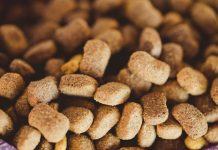Welcoming a new puppy into your home is an exciting journey filled with joy, laughter, and boundless energy. As a responsible pet parent, ensuring your puppy’s health is a top priority, and it involves more than just regular vet visits. This year, let’s embark on a journey to nurture your furry friend with love and care, building a foundation for a long and healthy life. In this guide, we’ll explore essential tips and practices to maintain your puppy’s health, from balanced nutrition and exercise routines to preventive care and socialization. With a warm heart and an open mind, you’ll learn how to create a nurturing environment that supports your puppy’s well-being every step of the way.
Choosing the Right Diet for Your Puppy
When it comes to nurturing your puppy’s health, diet is a cornerstone. It’s crucial to provide a balanced and nutritious meal plan that supports their growth and development. Start by consulting your veterinarian to understand your puppy’s specific dietary needs based on breed, size, and age. Here are some key elements to consider when selecting the best food for your furry friend:
- Protein: Ensure their food is rich in high-quality protein sources like chicken, lamb, or fish to support muscle growth.
- Fats: Healthy fats are essential for energy and a shiny coat. Look for foods with omega-3 and omega-6 fatty acids.
- Carbohydrates: Opt for complex carbohydrates such as sweet potatoes and brown rice, which provide sustained energy.
- Vitamins and Minerals: These are vital for overall health. Ensure their diet includes a balance of essential vitamins and minerals.
Remember, puppies have different nutritional requirements than adult dogs. Puppy-specific formulas are often tailored to meet these needs, ensuring they get the right amount of calories and nutrients. With the right diet, your puppy will not only thrive but also build a solid foundation for a healthy life ahead.
Establishing a Consistent Exercise Routine
Just like humans, puppies thrive on routine, and establishing a regular exercise schedule can be incredibly beneficial for their overall well-being. Creating a consistent exercise routine will not only help your puppy expend energy but also build strong muscles and maintain a healthy weight. Consider the following tips to ensure your puppy gets the exercise they need:
- Set a Schedule: Choose specific times each day for exercise to help your puppy get accustomed to a routine. Consistency is key to developing good habits.
- Mix Activities: Keep things interesting by incorporating a variety of activities. Short walks, playtime in the backyard, and interactive games can all contribute to a well-rounded exercise plan.
- Adjust for Age and Breed: Remember that exercise needs will vary depending on your puppy’s age and breed. Young puppies may require shorter, more frequent sessions, while older puppies might enjoy longer outings.
Creating an exercise routine tailored to your puppy’s needs ensures that they stay active, happy, and healthy. Plus, it provides an excellent opportunity for you to bond and share joyous moments with your furry friend.

Creating a Safe and Stimulating Environment
Ensuring your puppy thrives begins with crafting a space that is both secure and invigorating. Start by puppy-proofing your home; remove any hazardous items within reach and secure loose wires or cords. Install safety gates to restrict access to potentially dangerous areas, such as staircases or rooms with delicate furniture. Remember, a curious puppy is bound to explore, so take proactive measures to prevent accidents.
Beyond safety, fostering an environment that encourages mental and physical engagement is crucial. Incorporate a variety of toys that stimulate different senses, such as chew toys, puzzle feeders, and plush companions. Rotate these toys regularly to maintain interest and excitement. Create designated play zones where your puppy can romp freely, and consider using interactive games to build a strong bond. By combining safety with stimulation, you’ll cultivate a nurturing space that supports your puppy’s overall well-being.
















